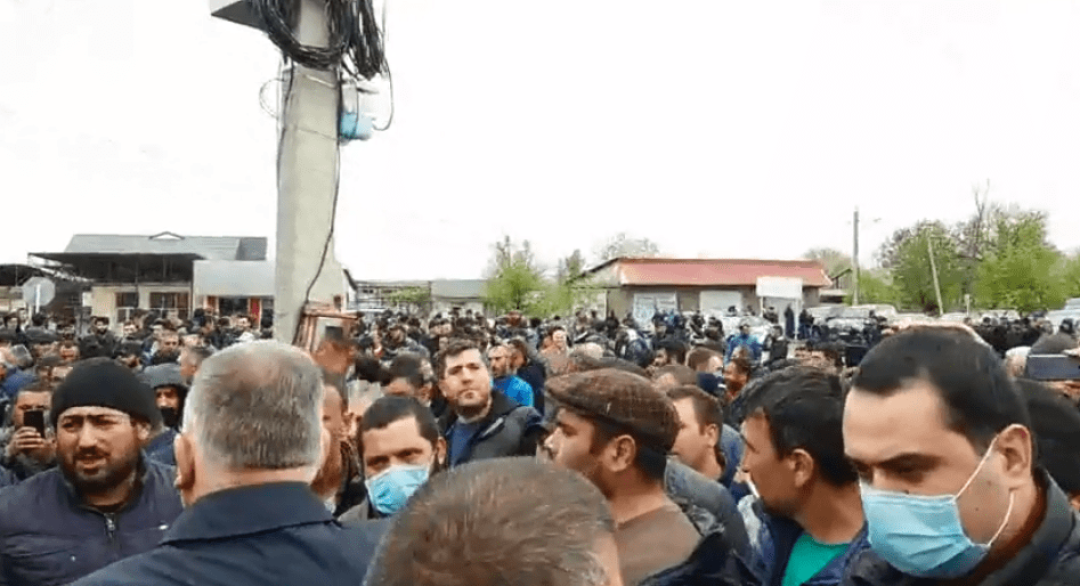
Protests in Marneuli municipality

On 22 April, protesters hit the streets of Shulaveri village in the Marneuli municipality in the East of Georgia, defying the restrictions on public gathering, reported civil.ge. Hundreds of locals, mostly ethnic Azeri farmers, protested the strict quarantine regime that had been in effect since 23 March, and expressed grievance caused by inability to sell their produce. The protesters demanded immediate intervention by authorities to rescue their businesses and support agriculture, a mainstay of the local economy.
A member of the European Georgia opposition party Akhmed Imamkuliev and a member of the United National Movement opposition Azer Suleimanov were present at the rally, where people were shouting ‘Misha, Misha!’ (ex-President of Georgia Mikheil Saakashvili). They said that the Georgian Dream government has taken no genuine steps to help the people who are dependent on the sale of agricultural products.
The Kvemo Kartli governor Shota Rekhviashvili came to the rally and had a verbal dispute with Imamkuliev. He said that negotiations are in progress for the agricultural products from the municipalities to be distributed in the regions.
The ruling Georgian Dream party accused the opposition of organising a rally in the Marneuli municipality. “This is a crime and we must warn them not play with fire. The public protest was organised by the representatives of the United National Movement,” said Georgian Dream Executive Secretary Irakli Kobahidze.
The opposition dismissed the allegations, stating that they do not know who stood behind the rally. The members of the civil society in the Marneuli municipality also dismissed the notion that the protests were politically driven and were more oriented towards the economic situation in the municipality. “Today’s demonstration was most likely unprompted. Some political activists might have also joined the protests, but most were simply concerned with bread-and-butter issues,” said the director of the Marneuli community radio Kamila Mamedova. “The protests that we have witnessed today have really overshadowed mere politics. While politics may have played a marginal role, a majority of the people joined the protest to make their economic woes known,” said the civil rights activist Shalala Amirjanova.
The Georgian government extended the state of emergency in the country until 22 May. The Prime Minister’s spokesperson Irakli Chikovani stated that despite the extension of the state of emergency, restrictions would gradually be eased in order to revert daily life and economic activities to their usual rhythm. “Citizens in municipalities that are carrying out agricultural works will be able to travel to the relevant locations between 06:00 and 08:00 in the morning, and to return to their homes between 18:00 and 19:00 in the evening. This implies travel by car,” he added in relation to the commerce of agricultural products in the country.
The current tally of infected persons in Georgia stands at 420, with 5 reported deaths.
See Also


Armenia Records 5.9% GDP Growth in 2024, Missing 7% Goal

Yerevan Balances Strategic Ties with Both US and Russia, Says Foreign Minister

FM Mirzoyan: Peace Deal with Azerbaijan Is Within Reach

Pashinyan and Erdogan Hold Call, Reaffirm Commitment to Ongoing Dialogue

